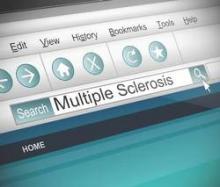High-dose oral methylprednisolone was noninferior to intravenous steroids for improving disability after multiple sclerosis relapse, according to a study published online in The Lancet.
The findings “support the use of oral methylprednisolone 1,000 mg per day for 3 days to treat MS relapses,” wrote Dr. Emmanuelle Le Page of Rennes (France) University Hospital and her associates. “Oral delivery is simpler and less invasive, more convenient for a quick primary and community care response, and allows obvious savings in cost and logistics,” they added. This also was the first trial with enough power to detect a difference between comparable doses of steroids begun early after relapse onset, they said.
Intravenous methylprednisolone is recommended as first-line treatment for MS relapses, but can be expensive and inconvenient, the investigators said. Authors of a recent Cochrane review found no differences in recovery between patients given high-dose oral or IV methylprednisolone, but concluded that the studies were underpowered. Based on their suggestions, Dr. Le Page and associates randomized 199 adults with relapsing-remitting MS to receive 1,000 mg oral or IV methylprednisolone once daily for 3 days, starting within a week of relapse onset. The researchers powered the study based on a predetermined efficacy margin of 15%. The primary efficacy endpoint was the percentage of patients who improved on day 28 by at least 1 point on their most affected score of the Kurtzke Functional System Scale, without needing more steroids (Lancet 2015;386[9997]:974-81).
In all, 81% of patients who received oral steroids and 80% of those who received IV therapy met this endpoint. Rates of treatment-associated adverse events also were similar between the two groups, except that patients were more likely to report insomnia on oral therapy (77% vs. 64%; P = .039). “This was also reported in the meta-analysis, and might be due to prolonged bioavailability,” the researchers wrote. They recommended giving oral methylprednisolone in the morning to help avert the problem.
The French Health Ministry, Ligue Française contre la Sclérose En Plaques, and Teva Pharmaceutical Industries funded the study. Dr. Le Page reported receiving consulting fees and grant funding from Novartis, Biogen, Teva, and Genzyme Sanofi Aventis. Five coauthors reported financial relationships with several public entities, foundations, and pharmaceutical companies. The other four coauthors declared no competing interests.


